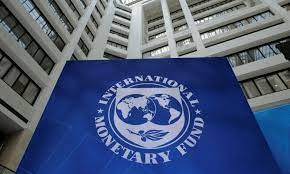Fixed monthly fee to jump from Rs10 to Rs400, consumer rates by 194pc
• Special ECC meeting scheduled today to clear unprecedented hikes
ISLAMABAD: Before seeking final dates for the second review of the ongoing IMF loan programme, the government has convened a special meeting of the Economic Coordination Committee (ECC) on Monday (today) to discuss and clear an unprecedented surge of 3,900 per cent in fixed monthly charges and a 194pc hike in consumer rates for natural gas.
These price adjustments, set for cabinet’s ratification on Tuesday, aim to be implemented retroactively from Oct 1.
This is on top of the petroleum division’s request to shift towards a new gas pricing mechanism on the pattern of the weighted average cost of local and imported gas (WACOG) to ensure the actual cost of gas supply and eradicate the flow of the gas sector’s circular debt, which stands at Rs2.1 trillion as of this June, according to a summary submitted to the ECC.
However, there’s a disparity in reported figures. Caretaker Petroleum Minister Muhammad Ali, a former chairman of the corporate watchdog SECP, has cited the gas sector’s circular debt at a higher Rs2.9tr in press conferences.
Interestingly, the summary he authorised for submission to the ECC also claimed that “price inaction until June 2024 will result in a revenue shortfall of Rs185bn on natural gas” and Rs210bn anticipated during winter to divert LNG to domestic consumers, hence a combined addition of Rs395bn this fiscal year.
Although a gas price hike with a specific deadline is not a performance benchmark for the upcoming IMF loan review, it has become inevitable given the lender’s strict conditions for no increase in the subsidy and a reversal of the circular debt during the current fiscal year, as it could otherwise derail fiscal and primary account targets.
Even though the petroleum division claims it is not seeking an increase in gas rates for the “protected category” of consumers in the domestic sector, it has still proposed up to 3,900pc hike in fixed monthly charges for these categories to Rs400 per month from Rs10 at present.
“The average prescribed price of each molecule is Rs1,291 per mmBtu (million British thermal units), but the protected category of domestic consumers is still paying a tariff of Rs121 per mmBtu to Rs250 per mmBtu in four consumption slabs,” the summary said.
“There will be no increase in tariff for the protected category (57pc of the domestic consumers); however, the fixed monthly charge is proposed to be increased from Rs10 to Rs400 for this category,” it said.
Effectively, therefore, the average gas costs for these protected consumer slabs (0.25 to 0.9 hundred cubic metres, or hcm) would also jump by up to 300pc due to higher fixed charges, and their annual bill is estimated to go up by up to 150pc.
For non-protected residential consumers, the gas rates would go up by 50pc to Rs300 per mmBtu for consumption of up to 0.25 hcm, 100pc to Rs600 per mmBtu for 0.6 hcm, and 150pc to Rs1,000 for up to 1 hcm.
The biggest jump of 173pc in prices would be for up to the 3 hcm slab to Rs3,000 per mmBtu (from Rs1,100).
The petroleum division has claimed that tariff revision was meant to be aligned with that of LPG cost in order to curb unbridled consumption while urging those who can afford to switch to alternate fuels to conserve gas.
The tariff for bulk consumption has been proposed to be increased by 25pc from Rs1,600 per mmBtu at present to Rs2,000, whereas there will be no change in tariff for the special commercial (tandoor roti) category that currently stands at Rs697 per mmBtu.
The tariff hike for commercial consumers has been proposed to be jacked up by more than 136pc to Rs3,900 per mmBtu, more than 193pc and 144pc for cement factories and CNG stations, respectively, to Rs4,400, 86pc increase for export industries to Rs2,050 per mmBtu and 117pc for non-export industries to Rs2,600.







0 Comments